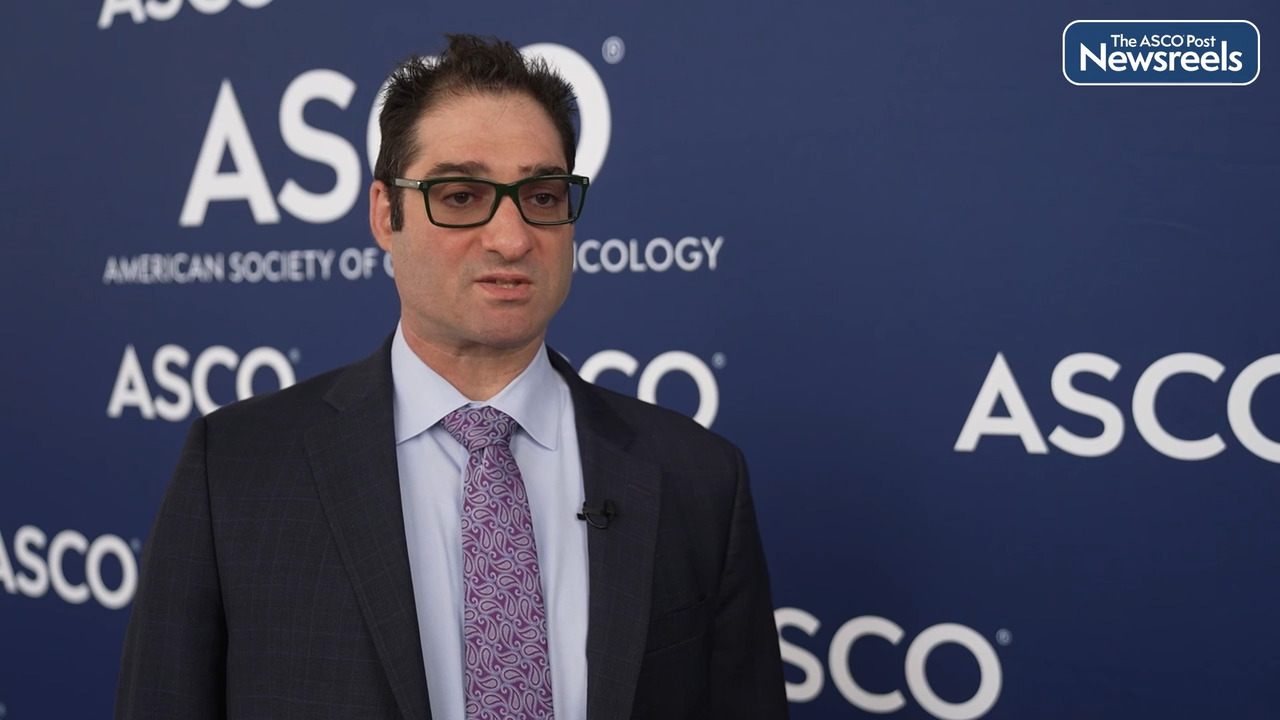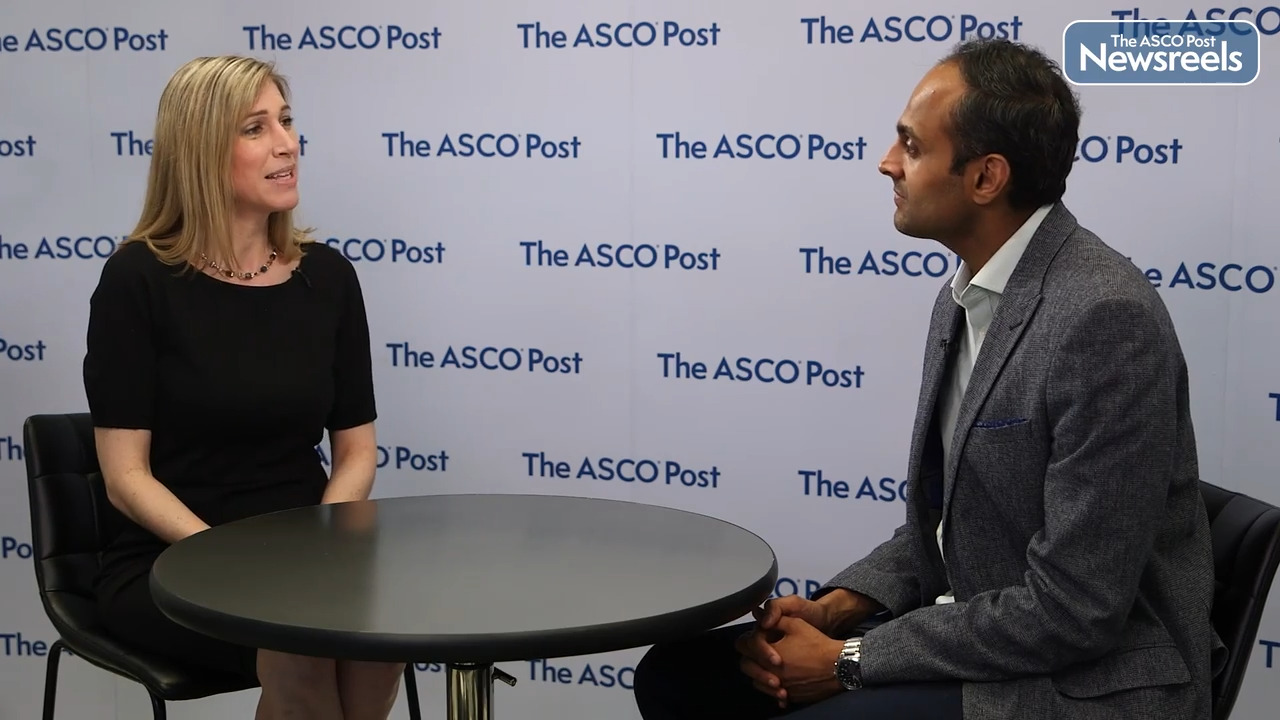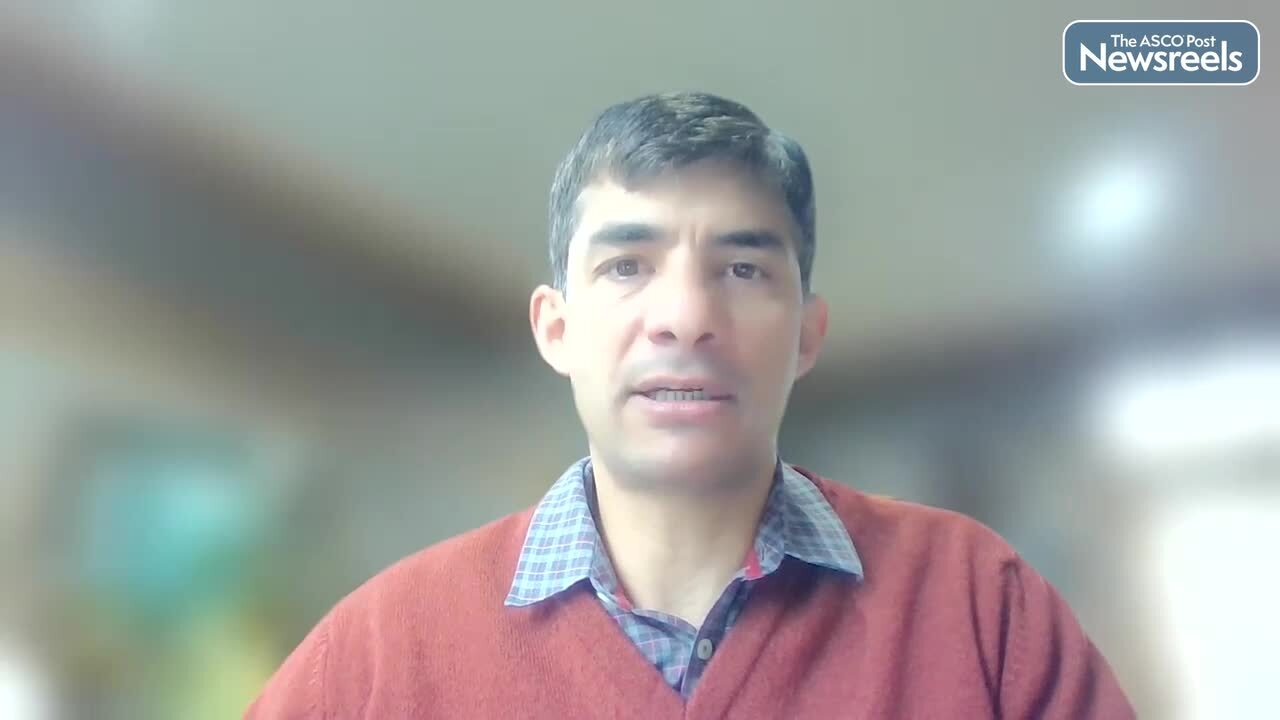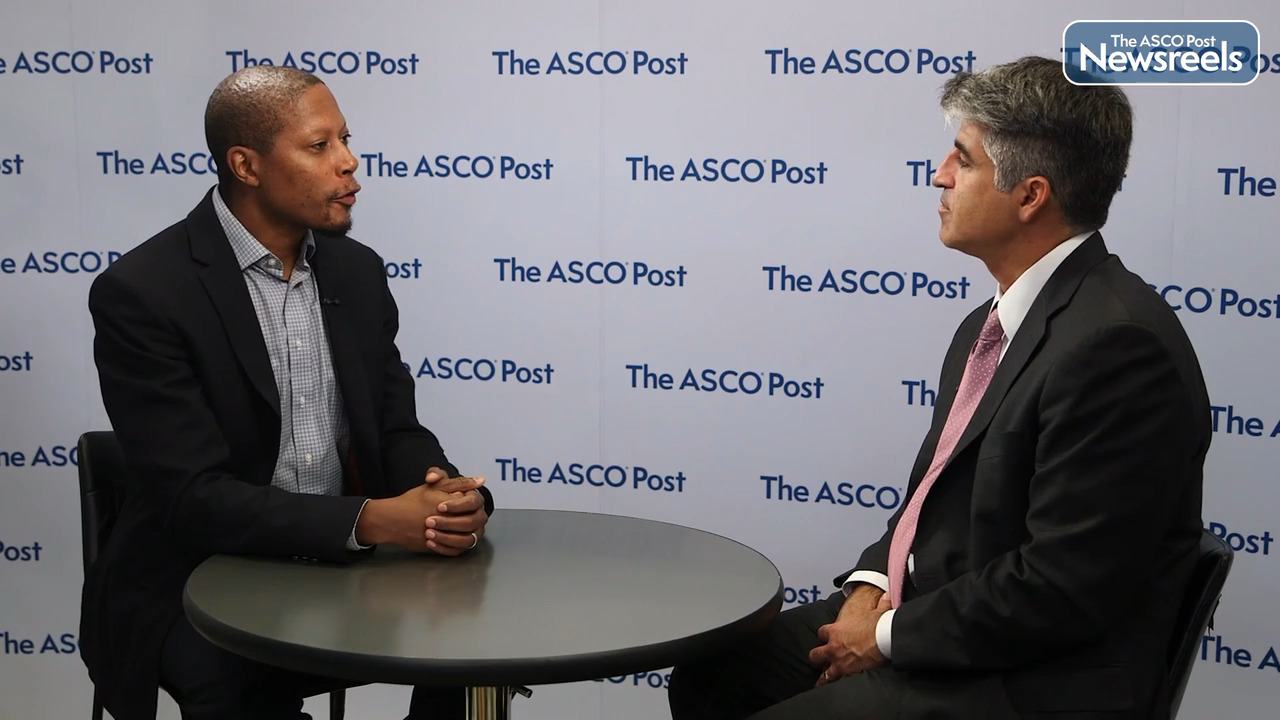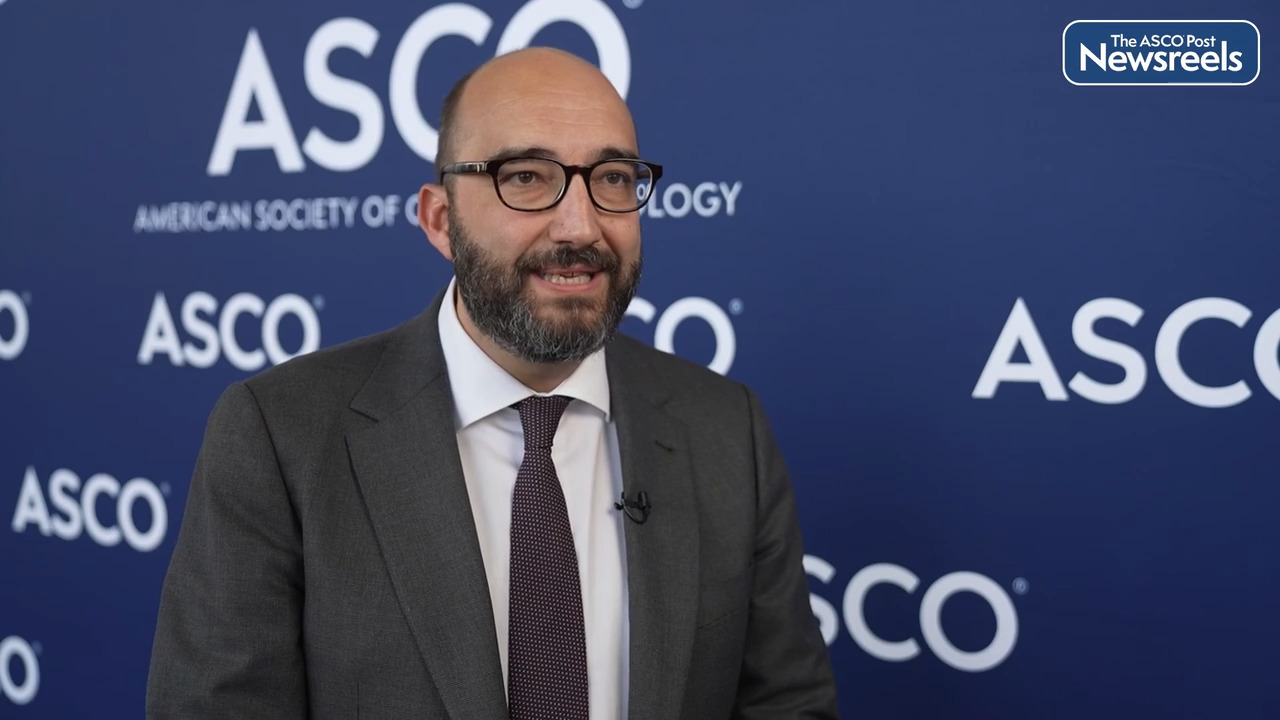Transcript
Disclaimer: This video transcript has not been proofread or edited and may contain errors.
Lisa M DeAngelis, MD:
You had a really exciting presentation of the INDIGO trial. Why don't you summarize the trial a bit and the critical question that it answered for our patients who have low grade gliomas.
Ingo K. Mellinghoff, MD:
The purpose of this study was to really prove whether this new drug called Vorasidenib, which is a targeted therapy blocking mutant IDH 1 and IDH 2, would be able to push back progression of the disease in patients with grade 2 gliomas, who had residual tumors and were in that watch away period. As you know, they often want to delay the chemotherapy, the radiation for the treatment because of the toxicity. And the question really was whether that drug would be able when compared to a placebo control, to push that back. And that was really the result. It did do that.
Lisa M DeAngelis, MD:
Which is incredibly exciting because this is the first time that such an agent has really been shown to have that powerful effect on lower grade tumors.
Ingo K. Mellinghoff, MD:
Exactly.
Lisa M DeAngelis, MD:
What do you think the implications are for higher grade IDH mutant tumors? Do you think there's an extrapolation there or unable to say?
Ingo K. Mellinghoff, MD:
I think unable to say at the current time. I would say the real bigger picture is that it was not clear whether the mutant IDH enzyme is a target, a valid target in this disease to begin with. And I think this was the first step, the most answerable question was in that grade 2 watch and wait setting, because you were able to do a single therapy placebo controlled study. I think one of the major conclusions besides just saying it works in that setting, is that mutant IDH is a target in this disease and probably warrants to be explored in other specific settings of that disease. Like a higher grade IDH mutant tumors, perhaps in combination therapy, perhaps in combination with standard therapy. So those are all the questions, I think there are now emerging, now that we feel like we have kicked the door open with documenting activity in one setting.
Lisa M DeAngelis, MD:
Right. Are you planning studies in higher grade tumors or future studies in patients with low grade disease?
Ingo K. Mellinghoff, MD:
Yeah, so right now there's one trial that is accruing, that is a combination therapy study that combines Vorasidenib with a PD1 inhibitor, pembrolizumab. And the reason for that is we found in this surgical study, that by blocking the mutant IDH enzyme, certain immune related genes were upregulated. And we felt like maybe that's an opportunity to enhance and reinvigorate the anti-tumor immunity by combining it with pembrolizumab. So that is a very specific trial that is now accruing for grade 3 enhancing astrocytomas, so it's pushing in that direction a little bit, both combination therapy and both higher grade. And then the other extensions and future trials are being discussed right now, what that might look like.
Lisa M DeAngelis, MD:
So the patients who enrolled in the INDIGO study who were randomized to receive Vorasidenib, are they still on the drug?
Ingo K. Mellinghoff, MD:
Yes.
Lisa M DeAngelis, MD:
And are you continuing to follow them?
Ingo K. Mellinghoff, MD:
Yes. Yeah, that's a really important question. The study was as you know, so successful that we met the superiority at the preplanned second interim analysis. So we're 18 months ahead of schedule and we had to unblind because there is a clear efficacy signal. But now we have plenty of people on Vorasidenib and we will follow the outcome of these patients and their scans. And so there is definitely a lot more data coming forward and follow up from this.
Lisa M DeAngelis, MD:
And all the patients who were randomized to placebo are now on Vorasidenib-
Ingo K. Mellinghoff, MD:
Many of them-
Lisa M DeAngelis, MD:
Once you unblinded?
Ingo K. Mellinghoff, MD:
Yep. So there were 58, I believe. The vast majority of them, they switched over to Vorasidenib, of the placebos patients-
Lisa M DeAngelis, MD:
But even those who didn't progress on placebo, are they on Vorasidenib now?
Ingo K. Mellinghoff, MD:
Yes.
Lisa M DeAngelis, MD:
They're also? Okay.
Ingo K. Mellinghoff, MD:
They're also, yeah. So everyone was unblinded. Nobody's on placebo anymore. They either switched over many, most did. And it's exciting. But there is a lot more, I think, data coming forward in the future meetings. For example, growth rates, I remember we had spoken before about tumor volumes and how these tumors really continuously grow. It's just a question, how hard you look. What the technology allows you to do? And so we have that whole data doing volumetric studies on how these scans to inform that much more granular view of tumor growth.
Lisa M DeAngelis, MD:
And I know you also are collecting the critical symptoms that these patients have control of epilepsy and cognitive function, et cetera, because those are the main problems with this disease, as far as the symptoms that they cause for patients.
Ingo K. Mellinghoff, MD:
Exactly. As you and I have spoken about many times, the real question is how can we make these patients not only live longer, but also live well? And so really, getting more serious in as it relates to their symptoms and measuring seizure frequency, neurocognitive function, is such an important endpoint in the long run. So we have measured all these things and we will report them and relate them to the tumor effects.
Lisa M DeAngelis, MD:
And finally, if any of the patients on the trial need to have a resection down the road, will you be able to collect that tissue-
Ingo K. Mellinghoff, MD:
Yes, absolutely.
Lisa M DeAngelis, MD:
... for purposes of resistance or even drug penetration at that point?
Ingo K. Mellinghoff, MD:
Yes, we will. Absolutely. That's a probably top priority is to understand patterns of response and lack of response and acquired resistance. We don't know really anything about the patterns of acquired resistance to this type of therapy in glioma. And there's a really concerted effort and hopefully all of our colleagues and certainly we will try to share the tumor tissue from any subsequent resections to try to understand that question.
Lisa M DeAngelis, MD:
So a lot to look forward. Are we anticipating the drug to become available to practitioners in the not too distant future?
Ingo K. Mellinghoff, MD:
That is certainly my hope. That is out of my wheelhouse to either decide or come up with timelines, but definitely that is the plan and we're all really excited about it.
Lisa M DeAngelis, MD:
Yes, it is incredibly exciting. Thank you so much, Ingo, for joining us today.
Ingo K. Mellinghoff, MD:
Thank you, Lisa, for taking the time. It's a pleasure to talk to you.
